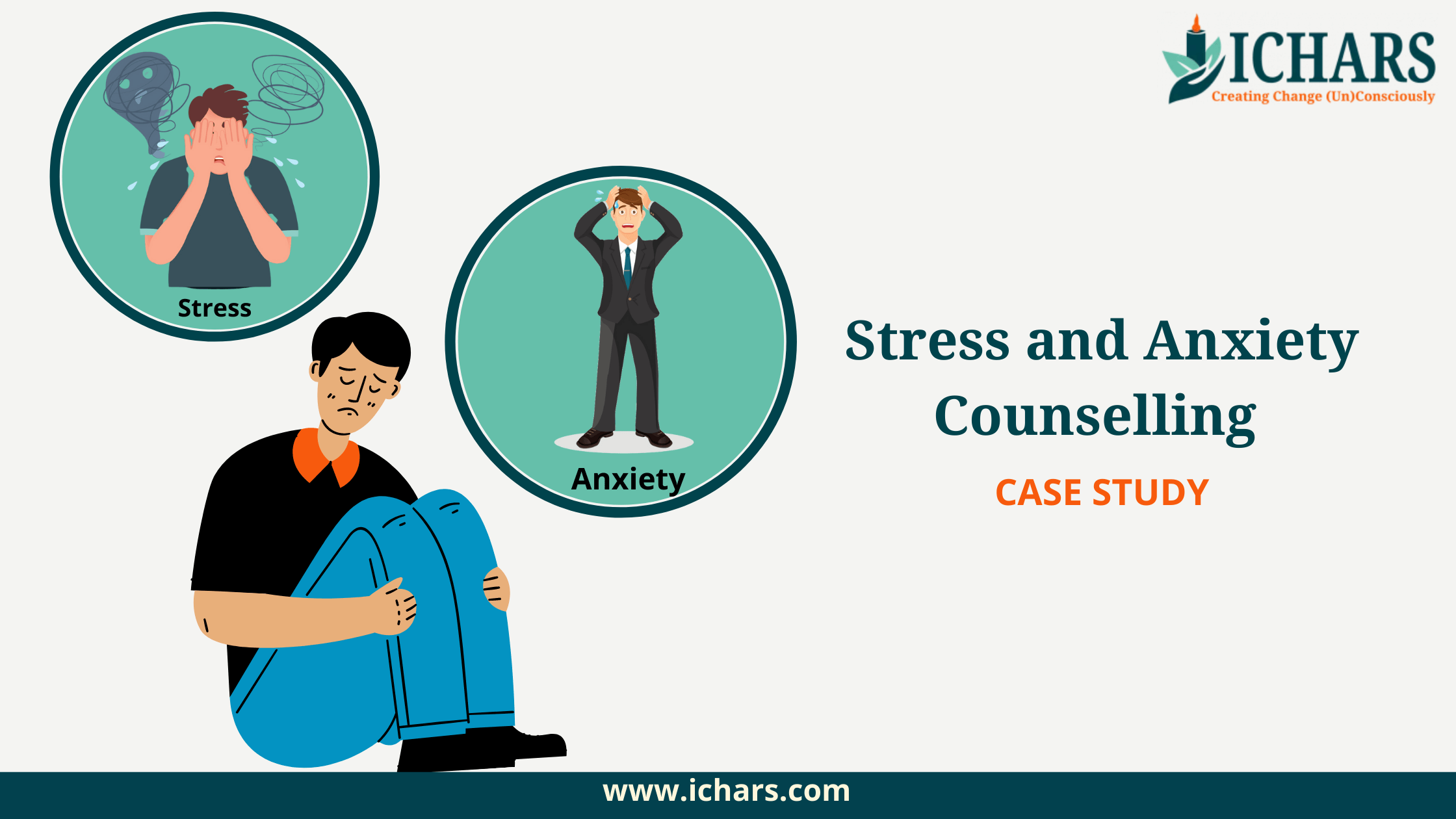Explore research-backed techniques through counselling for anxiety disorder programs
Explore research-backed techniques through counselling for anxiety disorder programs
Blog Article
Discovering Different Approaches in Therapy for Anxiety Problem for Enduring Modification
When tackling anxiousness conditions, it's important to explore a variety of therapy approaches. Each technique supplies distinct understandings and tools to assist you handle your symptoms properly. You may locate that combining methods can generate the most effective results. Comprehending the subtleties of these strategies is crucial to fostering enduring modification. What if the right mix could launch a brand-new degree of psychological health for you?
Understanding Stress And Anxiety Conditions: A Quick Introduction
Anxiety conditions, which impact numerous people worldwide, can substantially affect everyday life. You may experience frustrating sensations of worry or fret that appear irrepressible. These feelings can result in physical signs and symptoms like a racing heart, sweating, or even lightheadedness. Typical types of stress and anxiety conditions include generalized anxiety condition, panic problem, and social anxiousness problem. Each has unique indicators, but they all share a tendency to disrupt your routine and relationships.Understanding the source of your anxiousness is crucial. It may originate from genes, mind chemistry, or life experiences. Acknowledging your triggers can assist you manage your reactions better. It is very important to keep in mind that you're not alone in this battle. Lots of people deal with similar difficulties, and seeking help is a strong action toward sensation much better. By finding out about anxiousness conditions, you're currently on the path to understanding and managing your problem much more effectively.
Cognitive-Behavioral Treatment: Challenging Adverse Thought Patterns

Identifying Adverse Thought Triggers
When you encounter minutes of distress, acknowledging the specific triggers behind your unfavorable thoughts can be crucial in handling anxiety. Begin by focusing on circumstances that prompt feelings of concern or worry. Is it a jampacked room, an upcoming target date, or a conversation with particular individuals? Jot down these circumstances in a journal. This will certainly assist you identify patterns in your thinking. Additionally, notice physical experiences that accompany your negative thoughts, like an auto racing heart or rigidity in your chest. By identifying these triggers, you obtain insight into what's sustaining your anxiousness. Understanding these connections is the primary step in challenging those thoughts and eventually reclaiming control over your emotional reactions.

Replacing Ideas With Positives
Challenging unfavorable idea patterns is a vital action in transforming your attitude and reducing stress and anxiety. You might usually find yourself entraped in cycles of insecurity or devastating reasoning. Rather than allowing these ideas dictate your feelings, practice changing them with positive affirmations or practical options. For example, when you assume, "I can not manage this," change it to, "I can take care of obstacles one step at once (Counseling services for anxiety)." This straightforward change can considerably impact your emotion. Frequently identifying and countering these adverse thoughts assists create a healthier inner discussion. Keep in mind, it takes time and effort, yet regularly exercising this strategy can result in long-term change, equipping you to deal with anxiety with renewed self-confidence and strength
Building Coping Techniques Together
Replacing adverse ideas is only the beginning of taking care of anxiousness successfully. To create long lasting modification, you require to construct coping methods that empower you. Cognitive-Behavioral Treatment (CBT) helps you identify and challenge those unhelpful thought patterns. With each other, you and your therapist can discover just how these ideas influence your feelings and behaviors.Start by developing useful methods, like journaling or mindfulness exercises, that permit you to face anxiousness head-on. When you face your anxieties slowly, you'll learn to react differently.
:max_bytes(150000):strip_icc()/GettyImages-814596226-5f685bb021444e6aba7994e617732302.jpg)
Mindfulness and Acceptance-Based Approaches: Cultivating Present-Moment Awareness
As you navigate the intricacies of anxiousness, including mindfulness and acceptance-based techniques can significantly improve your ability to grow present-moment recognition. By concentrating on the right here and now, you'll locate that you can observe your ideas and feelings without judgment. This practice aids you acknowledge your anxiety without really feeling bewildered by it.Engaging in mindfulness exercises, such as deep breathing, body scans, or directed reflections, permits you to ground yourself in your existing experience. Acceptance-based methods encourage you to welcome your feelings rather than deal with versus them. They shed their power over you.Incorporating these techniques right into your day-to-day regimen can transform exactly how you respond to stress and anxiety when you approve your sensations. You'll establish strength and find out to browse demanding scenarios with better convenience. Inevitably, growing present-moment recognition lays the structure for long-term adjustment, encouraging you to lead an extra meeting life.
Direct Exposure Treatment: Facing Concerns Slowly
Exposure therapy helps you challenge your fears in a gradual method, making it much less overwhelming. You'll learn techniques to face anxiety-provoking situations detailed, while likewise developing coping approaches to manage your responses. This strategy equips you to take control and decrease anxiety over time.
Steady Direct Exposure Methods
When facing anxiety, progressively facing your worries can be a powerful means to gain back control. This method, referred to as gradual direct exposure, involves slowly subjecting on your own to the situations or things that activate your anxiety. Begin with much less intimidating situations and slowly work your method as much as more tough ones. For example, if you hesitate of public talking, you might begin by speaking in front of a mirror, then advance to sharing thoughts with a pal, and ultimately attend to a tiny team. Each step aids desensitize you to the fear, developing your confidence over time. Keep in mind, it's important to rate on your own and celebrate small triumphes as you move with this procedure, reinforcing your capability to take care of anxiousness effectively.
Building Coping Methods
Structure effective coping methods is vital for managing anxiety, specifically as you face your fears progressively. my link One effective technique is direct exposure therapy, where you begin by facing your fears in a regulated way. Start with less intimidating circumstances and gradually function your method approximately even more tough scenarios. This gradual direct exposure aids desensitize you to anxiety triggers, making them less overwhelming.Incorporate relaxation strategies, such as deep breathing or mindfulness, to soothe your mind throughout direct exposure. Track your progression, commemorating small victories along the road to improve your self-confidence. Remember, it's fine to take your time; the objective isn't perfection yet stable enhancement. By constructing these strategies, you'll empower on your own to browse anxiousness and embrace life extra completely.
Psychodynamic Treatment: Discovering Source of Anxiety
Psychodynamic treatment discovers the unconscious mind, revealing the source of your stress and anxiety - Counseling services for anxiety. By analyzing your thoughts, feelings, and past experiences, this approach helps you uncover underlying disputes and unsolved issues that may add to your existing anxiousness. You'll function with a therapist to examine childhood experiences, partnerships, and psychological patterns that form your responses today.As you acquire insight into these much deeper layers of your subconscious, you'll start to identify just how previous events influence your present habits. This understanding can bring about catharsis, permitting you to process feelings you may have suppressed.Through the therapeutic partnership, you can additionally determine defense systems that might have established with time, offering a clearer path to change. Ultimately, psychodynamic therapy equips you with the tools to address your stress and anxiety at its core, advertising enduring makeover in your psychological health
Holistic and integrative Approaches: Combining Strategies for Greater Efficiency
Incorporating various healing strategies can boost your journey toward managing anxiety better. By combining elements from cognitive-behavioral treatment, mindfulness methods, and holistic methods, you can create a customized strategy that resolves your special requirements. You could make use of cognitive-behavioral strategies to test negative thought patterns while including mindfulness workouts to ground yourself in the existing moment.Additionally, checking out holistic techniques such as yoga exercise or meditation can promote leisure and decrease anxiousness symptoms. This blend allows you to develop higher self-awareness and resilience.Experimenting with these diverse techniques can aid you uncover what reverberates most with you. Bear in mind, it has to do with locating a synergy that works, as opposed to sticking to a single strategy. This integrative read here technique not only provides instant relief yet also promotes long-lasting skills for managing anxiety, encouraging you to redeem control over your life.
The Role of Support Solutions: Structure Resilience With Link
While it could seem that managing stress and anxiety is a singular trip, having a strong support group can play a vital role in your resilience. Bordering on your own with compassionate good friends, household, or support system develops a risk-free space where you can honestly share your experiences and feelings. When you get in touch with others, you advise yourself that you're not alone in this struggle.These partnerships use encouragement and can give functional coping strategies that have benefited others. It's additionally an opportunity to obtain point of view; close friends can aid you see scenarios in different ways, lowering sensations of isolation.Moreover, psychological assistance fosters a feeling of belonging, which can greatly minimize anxiousness signs and symptoms. By leaning on your support group, you can build strength and tackle difficulties more successfully. Remember, getting to out for aid is an indication of toughness, and it can make all the difference in your journey towards managing stress and anxiety.
Regularly Asked Concerns
What Are the Common Signs And Symptoms of Stress And Anxiety Disorders?
You could experience uneasyness, fatigue, difficulty focusing, irritability, muscular tissue stress, and rest disturbances. Physical symptoms can consist of rapid heart beat, sweating, and trembling. Identifying these indicators early can assist you look for proper support and treatment.

For How Long Does Treatment Generally Last for Stress And Anxiety Conditions?
Treatment for anxiousness disorders generally lasts anywhere from a couple of weeks to a number of months. It actually relies on your individual needs, progress, and the techniques your therapist uses to assist you manage your stress and anxiety properly.
Can Medication Be Used Alongside Therapy for Anxiety?
Yes, medication can best site definitely be used alongside therapy for stress and anxiety. Integrating both techniques usually improves therapy performance, helping you handle symptoms while discovering underlying concerns via therapy. Constantly consult your healthcare company for tailored recommendations.
Are There Self-Help Techniques for Managing Anxiety?
Yes, there are several self-help techniques for handling anxiousness. You can exercise mindfulness, take part in normal exercise, maintain a well balanced diet regimen, develop a regular, and make use of deep breathing techniques to help in reducing stress and anxiety signs and symptoms successfully.
Exactly how Do I Know if I Need Professional Help for Anxiety?
You ought to think about seeking expert assistance for stress and anxiety if it interrupts every day life, causes significant distress, or if self-help techniques aren't working. Trust your instincts; reaching out can result in much better coping skills and assistance. Typical types of anxiety problems include generalised anxiety condition, panic disorder, and social stress and anxiety disorder. When you come across minutes of distress, acknowledging the details triggers behind your unfavorable ideas can be important in managing anxiousness. Replacing adverse thoughts is only the start of managing stress and anxiety properly. By examining your thoughts, sensations, and previous experiences, this method assists you reveal underlying conflicts and unsettled concerns that may contribute to your present anxiety. It's likewise a chance to get point of view; pals can assist you see scenarios in different ways, lowering feelings of isolation (Counseling services for anxiety).Moreover, psychological assistance fosters a feeling of belonging, which can significantly alleviate stress and anxiety signs
Report this page